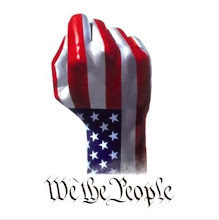Who has not heard the expression, “the customer is always right”? This seems like a great idea for the business world where it is imperative to coddle consumers so as to make them repeat customers. For those of you who have worked retail before, particularly a retail pharmacy, you know how this principle can be abused by certain customers/patients who try to take it to the nth degree. For those of you who have yet to work in a retail pharmacy, then you better pay attention because this issue will feel very real to you before long.
We all know, or should by now, that being a pharmacist involves a great deal of responsibility. I’m not just talking about the obvious responsibilities of checking for drug interactions, watching for contraindications, or resolving third party conflicts. One issue becoming more prevalent all the time is the process of communicating with patients and making sure they understand everything about their medications that they need to in order to provide them the best patient care possible. What happens, as is becoming more prevalent nowadays, when your customer base consists of patients from diverse backgrounds? How can you, as a pharmacist, best serve your patients when they come from so many different cultures, speak various languages, and hold many different beliefs and values from your own? Is it better to try to treat each and every patient as a separate individual and account for all of their idiosyncrasies, or would it be more efficient to treat all of your patients in basically the same manner and let them adapt to you?
The knee-jerk response of compassion, very prevalent in America today, may lead one to immediately say that the pharmacist should do his or her best to deal with each patient on an individual basis. The argument is that in order to provide the best patient care the pharmacist must try to be aware of different ideologies and beliefs held by people of different backgrounds so as to avoid offending them. In some cultures, for example, it is rude to look someone in the eye that is older than yourself. Some cultures have very strong beliefs about medicine and healing that may be very different from anything a student would learn in an American pharmacy school. This would mean that the pharmacist, in addition to what he or she learned in school, would have to also learn what people of different ethnicities think about medicine and healing. Some cultures, for example, put a lot more faith in herbal medications than we do here in America. This reasoning would result in the pharmacist having to be aware of these differences in case anyone from a particular culture should happen to bring a prescription in to be filled.
The other side of the argument states that perhaps it would be better if the pharmacist or technician just stay constant, and treat patients in the same manner. If special circumstances are required for someone who does not speak the language, for example, they can take the initiative and bring in someone, a friend or family member, who speaks English and can translate for them. Advocates of this point of view may argue that there is just too much variety out there and it is ludicrous to expect a pharmacist, or anyone working retail, to cater to everyone who walks into their store. Perhaps foreigners coming into the pharmacy who are from another culture could try to realize on their own that any offense by a pharmacist or technician is purely accidental, not intentional. Maybe they could use a little foresight and realize that there are many different ethnicities to account for in this country and that misunderstandings are inevitable.
It is interesting how the responsibility is always placed on the server and not the one being served. Pharmacy, which is basically the only health profession that exists in a retail environment, is especially interesting because one would think that, when it comes to health, the one being served would do their best to makes things as easy for the pharmacist as possible. The opposite seems to be true, however. Not only is the pharmacist expected to perform his or her normal responsibilities as quickly as possible and with no errors, but now it seems as though he or she is also expected to know every subtle nuance that exists in the world and be an international translator as well. This is just one example of how attitudes are changing around the world and especially in this country. Everyone is so paranoid about offending someone else and those who get offended seem to do so over the most inane things. Touchiness has reached a new plateau and it has resulted in making life much more difficult than it needs to be. God forbid anyone should say or do something that offends someone else. Unless we all start to relax a little and quit taking trivial things so seriously, matters are going to get a lot worse. Of course, that’s another article entirely.
Subscribe to:
Post Comments (Atom)




No comments:
Post a Comment